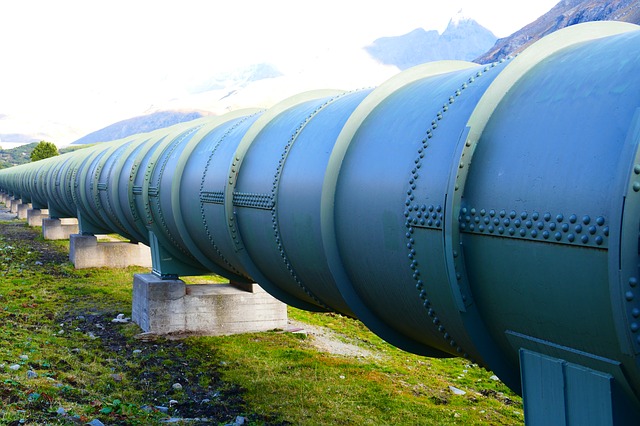Image Credit: File Photo
Oil trading is a complex and dynamic industry, with many factors that can influence prices and supply. One of the most critical components of the oil supply chain is pipeline infrastructure. The pipeline infrastructure is an essential component that moves oil from the point of production to refineries and end-users. In this article, we will explore the impact of pipeline infrastructure on oil trading.
Pipeline Infrastructure and Oil Trading
The Oil Era which is an Oil trading platform is heavily reliant on the pipeline infrastructure. The pipeline infrastructure is a vital part of the oil supply chain, and its significance is increasing day by day. It has become the primary mode of transportation for crude oil and refined products. Pipelines are safe, efficient, and cost-effective, making them the preferred method of transporting oil over long distances.
Pipeline infrastructure plays a crucial role in the oil trading industry. The availability of pipelines can significantly affect the flow of oil and ultimately impact the price of oil. When the pipeline infrastructure is inadequate or damaged, it can lead to supply disruptions and price spikes. In contrast, when the pipeline infrastructure is efficient and robust, it can ensure a steady supply of oil, resulting in stable prices. For better insight you can go through the Oil Profit official website.
The Importance of Pipeline Infrastructure
The pipeline infrastructure is essential for the oil trading industry for several reasons.
-
Firstly, pipelines offer a safer and more reliable way to transport oil than other methods. Pipelines can transport large quantities of oil over long distances with minimal risk of accidents or spills. In comparison, other modes of transportation, such as tanker trucks and ships, can be more susceptible to accidents, which can cause supply disruptions and increase prices.
-
Secondly, pipelines are cost-effective compared to other methods of transportation. It is cheaper to transport oil through pipelines than by tanker trucks, which require frequent refueling and maintenance. Pipelines are also more efficient, allowing for a higher volume of oil to be transported in a shorter amount of time.
-
Lastly, pipelines can transport oil to remote areas that are inaccessible by other modes of transportation. This can help expand the reach of the oil trading industry, resulting in increased supply and more stable prices.
The Impact of Pipeline Disruptions on Oil Trading
Pipelines play a crucial role in the oil trading industry, as they are responsible for the transportation of oil and petroleum products across vast distances. They are designed to be reliable and efficient, but unfortunately, pipeline disruptions can occur, leading to severe impacts on oil trading.
Pipeline disruptions can result from a range of factors, such as equipment failure, sabotage, cyberattacks, natural disasters, and maintenance activities. Regardless of the cause, pipeline disruptions can have significant effects on the supply and price of oil products.
One of the most recent and notable pipeline disruptions occurred in the summer of 2020 when the Colonial Pipeline, which supplies gasoline and diesel to the East Coast of the United States, was shut down due to a cyberattack. The shutdown lasted for almost a week and led to fuel shortages and price increases across several states.
This incident demonstrated the critical role of pipelines in the oil trading industry and how a single disruption could cause significant disruptions across the supply chain. The pipeline’s shutdown led to shortages and price spikes, as oil traders struggled to find alternative means of transportation for their products.
In addition to cyberattacks, pipelines are also vulnerable to natural disasters such as hurricanes and earthquakes. For example, in 2017, Hurricane Harvey damaged several pipelines in Texas, causing fuel shortages and price increases across the country. This is because pipelines are often located in areas prone to natural disasters and can be damaged or destroyed, disrupting oil supply chains.
Moreover, pipeline disruptions can also lead to environmental consequences. In the event of a pipeline spill, oil can contaminate surrounding lands and water bodies, leading to severe environmental damage and cleanup costs.
Conclusion
In conclusion, pipeline infrastructure is an essential component of the oil trading industry. It plays a critical role in ensuring a steady supply of oil and stable prices. Pipelines offer a safer, more efficient, and cost-effective way to transport oil than other modes of transportation. However, pipeline disruptions can significantly impact oil trading, leading to supply disruptions and price spikes.



